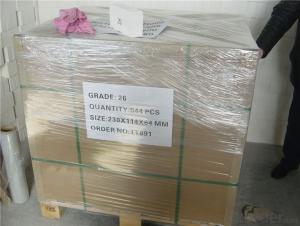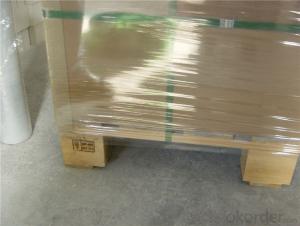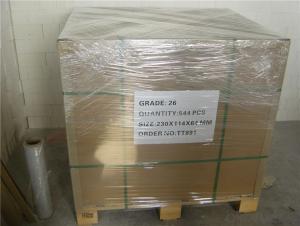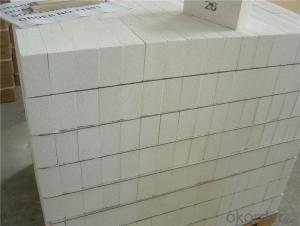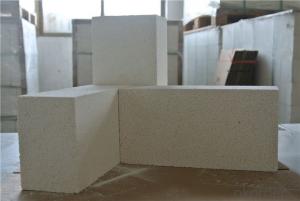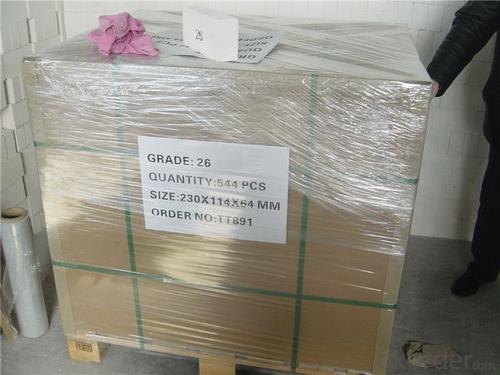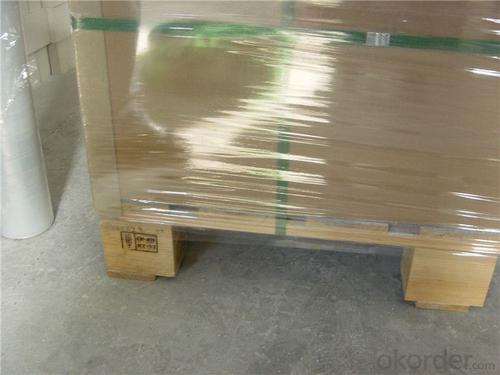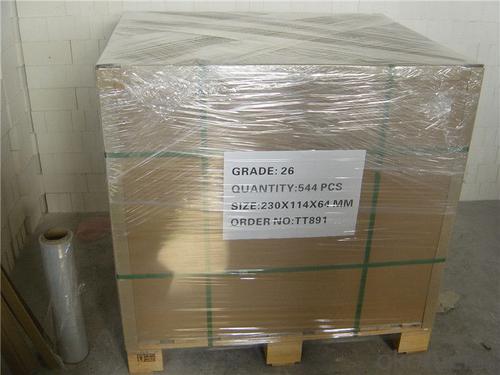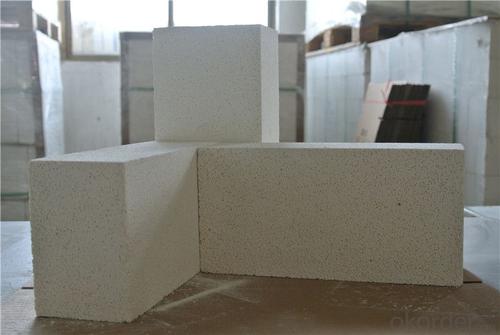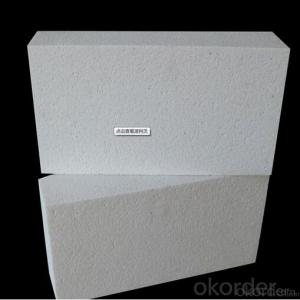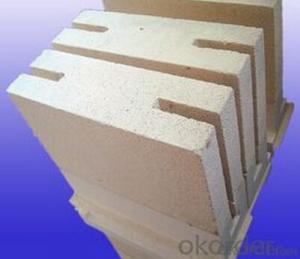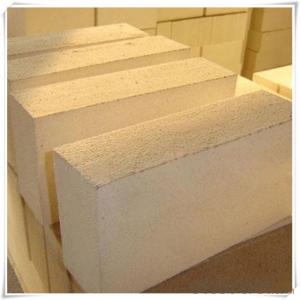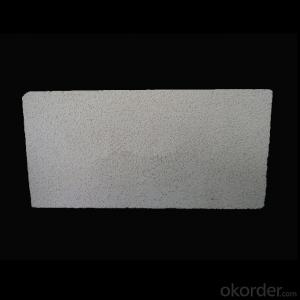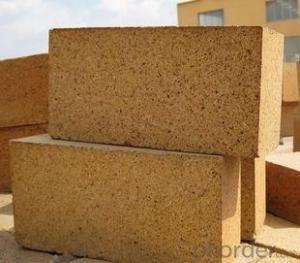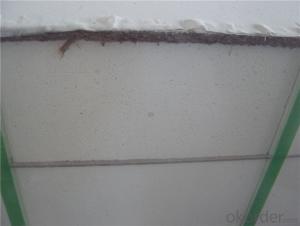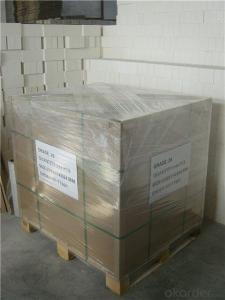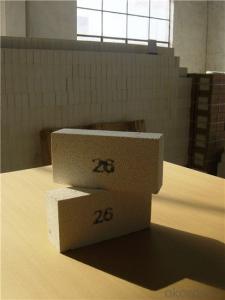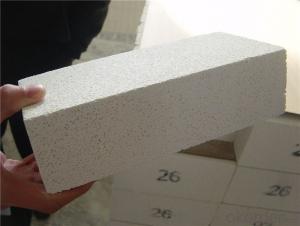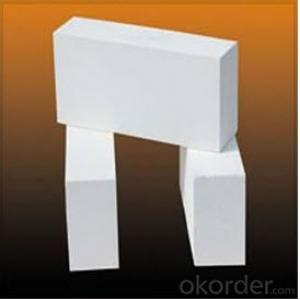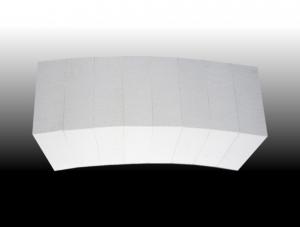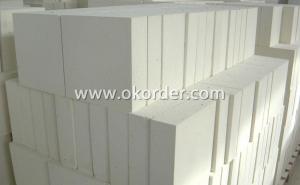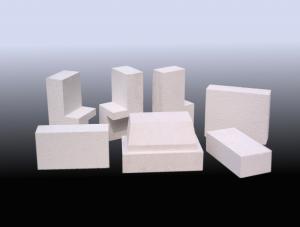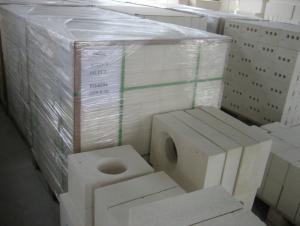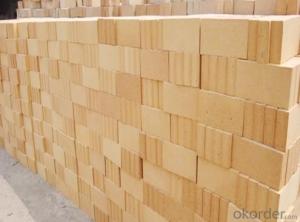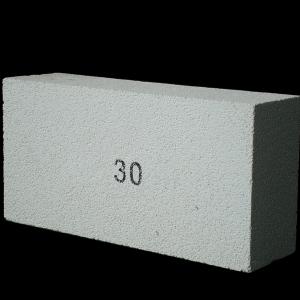Insulating Fire Brick - CCE.Fire Fire Resistant Insulation Fire Clay Brick
- Loading Port:
- Shanghai
- Payment Terms:
- TT OR LC
- Min Order Qty:
- 1 m.t.
- Supply Capability:
- 1000 m.t./month
OKorder Service Pledge
OKorder Financial Service
You Might Also Like
Thermal Insulation Fire Clay Brick
Refractory brick is a block of refractory ceramic material used in lining furnaces, kilns, fireboxes, and fireplaces.
We provide high quality Refractory Fire Bricks that are used on wide range in the various industries like Cement, Glass and Steel. Refractory Fire Bricks are provided as per the quantity and specifications required by the customers. We provide an extensive range of Refractory Fire Bricks at reasonable prices that depend upon the quantity ordered.
Application
Insulating Fire Brick are used for the lining of converter, alternating current arc furnace, direct Current arc furnace and the ladle slag line, etc.
Company Advantage
(1)Long Insulating Fire Brick manufacture history: 25 years manufacturer
(2)Advanced equipment
(3)Diversification of production standards: ISO ANSI FEPA JIS ASTM
(4)Flexible payment: T/T L/C D/P D/A
(5)Professional marketing team and after-sale service
Insulating Fire Brick main feature:
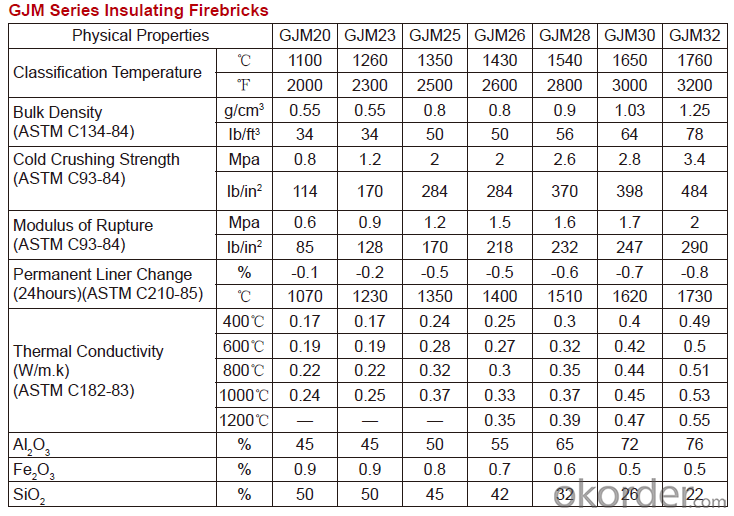
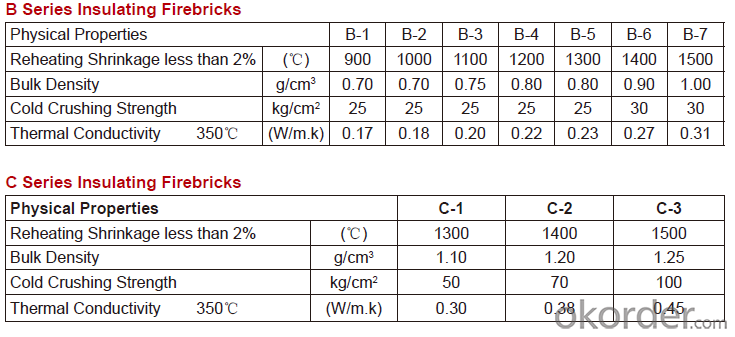
Equipment
1 unit of Ceramic Abrasive (SG Abrasive) pilot production line
2 units of Compact grain Abrasive pilot production lines
1 unit of high-end coated abrasives (abrasive cloth) production line
2 units of Boron Carbide production lines
3 large flexible crushing and sieving lines for grit production lines
6 units of 5000KVA-10000KVA dumping type electric arc furnaces for Brown Fused Alumina fusion
Q1 What’s the transport method?
A1 FCL delivery goods with wooden pallet or wooden case by sea; If LCL delivery, must with wooden case; Sometimes need open top, flat rack or bulk cargo.
Q2 What’s the required payment term?
A2 Generally 30% TT as the prepayment, 70% TT before delivery. If need, 100% Irrevocable Letter of Credit or negotiation.
Q3 Which country are our products exported to?
A3 Apart from entire Chinese market, the US, Russia, Japan, Korea, Australia and some Southeast Asian Nations.
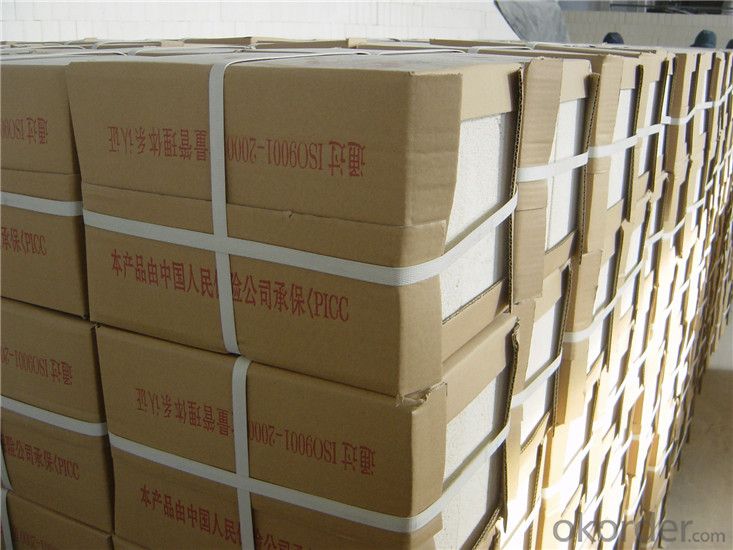
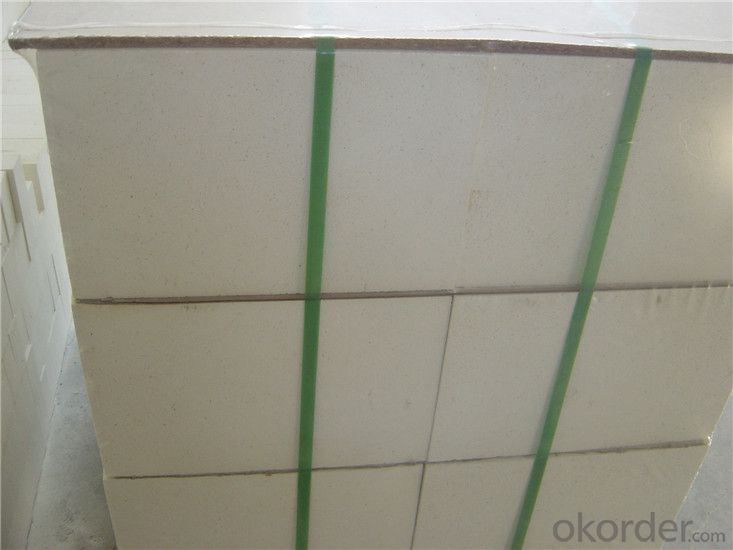
- Q: Are insulating fire bricks suitable for use in cement plants?
- Yes, insulating fire bricks are suitable for use in cement plants. They are commonly used in high-temperature applications, such as kilns and furnaces, due to their excellent thermal insulation properties and ability to withstand extreme heat. Insulating fire bricks can help optimize energy efficiency, reduce heat loss, and provide a more controlled and stable environment in cement plants.
- Q: Can insulating fire bricks be used in the construction of heat exchangers?
- Yes, insulating fire bricks can be used in the construction of heat exchangers. Insulating fire bricks are designed to have excellent thermal insulation properties, which makes them ideal for applications where high temperatures need to be maintained or controlled. Heat exchangers are devices that transfer heat between two or more fluids, and insulation is crucial to prevent heat loss or gain during the process. Using insulating fire bricks in the construction of heat exchangers helps to minimize heat transfer to the surrounding environment, resulting in improved energy efficiency and reduced operating costs. The bricks can withstand high temperatures, typically up to 3000°F (1650°C), making them suitable for various heat exchanger applications, including furnaces, boilers, and industrial processes. Additionally, insulating fire bricks are lightweight and have low thermal conductivity, which means they provide effective insulation while being less bulky and more cost-effective than traditional refractory bricks. This makes them easier to handle and install in heat exchanger systems. Overall, the use of insulating fire bricks in the construction of heat exchangers offers several advantages, including enhanced thermal insulation, improved energy efficiency, and reduced costs.
- Q: Can insulating fire bricks be used in chimneys and flues?
- Yes, insulating fire bricks can be used in chimneys and flues. These bricks are designed to withstand high temperatures and provide insulation, making them suitable for use in areas where heat needs to be contained or controlled, such as chimneys and flues.
- Q: Can insulating fire bricks be used for insulation in cryogenic applications?
- Yes, insulating fire bricks can be used for insulation in cryogenic applications. These bricks have excellent thermal properties that make them suitable for maintaining low temperatures and preventing the transfer of heat in cryogenic environments. They are designed to resist extreme cold and can effectively insulate against the loss of thermal energy, making them a reliable choice for cryogenic insulation.
- Q: Can insulating fire bricks be used for insulation in refractory lining repair?
- Yes, insulating fire bricks can be used for insulation in refractory lining repair. Insulating fire bricks are made from lightweight materials that have excellent thermal insulation properties, making them ideal for use in high-temperature applications such as furnaces, kilns, and other refractory lining structures. These bricks have low thermal conductivity and high resistance to thermal shock, allowing them to effectively insulate and protect the refractory lining from heat, preventing heat loss and reducing energy consumption. Moreover, insulating fire bricks are easy to install and replace, making them a cost-effective choice for refractory lining repair.
- Q: Can insulating fire bricks be used in the construction of autoclaves?
- Yes, insulating fire bricks can be used in the construction of autoclaves. Insulating fire bricks are designed to withstand high temperatures and provide excellent insulation, making them suitable for use in autoclaves where high heat and pressure are involved.
- Q: Can insulating fire bricks be used in the construction of industrial furnaces?
- Indeed, the utilization of insulating fire bricks is viable in the creation of industrial furnaces. These bricks are specifically engineered to endure elevated temperatures and thermal shocks, rendering them suitable for deployment in furnaces operating at exceedingly high levels of heat. Their thermal conductivity is notably low, thereby reducing heat dissipation and enhancing the energy efficiency of the furnace. Moreover, these fire bricks exhibit a lightweight composition and are effortlessly maneuverable, thereby proving to be convenient for construction endeavors. In summary, the superb insulation capabilities and heat-resistant attributes of insulating fire bricks position them as an optimal selection for the construction of industrial furnaces.
- Q: Are insulating fire bricks resistant to alkali vapor attack?
- Yes, insulating fire bricks are generally resistant to alkali vapor attack. They have a high degree of chemical stability and can withstand exposure to alkali vapors without significant degradation or damage.
- Q: Can insulating fire bricks be used in the construction of hot blast stoves?
- Yes, insulating fire bricks can be used in the construction of hot blast stoves. Insulating fire bricks are designed to withstand high temperatures and provide excellent thermal insulation, making them suitable for use in environments with extreme heat such as hot blast stoves. These bricks help to maintain the high temperatures required for efficient combustion while minimizing heat loss, improving the overall performance and energy efficiency of the hot blast stoves.
- Q: What is the recommended method for installing insulating fire bricks?
- The recommended method for installing insulating fire bricks is to first prepare the surface by cleaning it thoroughly and ensuring it is dry. Then, apply a thin layer of refractory mortar to the surface where the bricks will be placed. Carefully lay the bricks in a tight, staggered pattern, pressing them firmly into the mortar. Use a level to ensure they are properly aligned. Allow the mortar to dry completely before subjecting the bricks to heat.
Send your message to us
Insulating Fire Brick - CCE.Fire Fire Resistant Insulation Fire Clay Brick
- Loading Port:
- Shanghai
- Payment Terms:
- TT OR LC
- Min Order Qty:
- 1 m.t.
- Supply Capability:
- 1000 m.t./month
OKorder Service Pledge
OKorder Financial Service
Similar products
Hot products
Hot Searches
Related keywords
